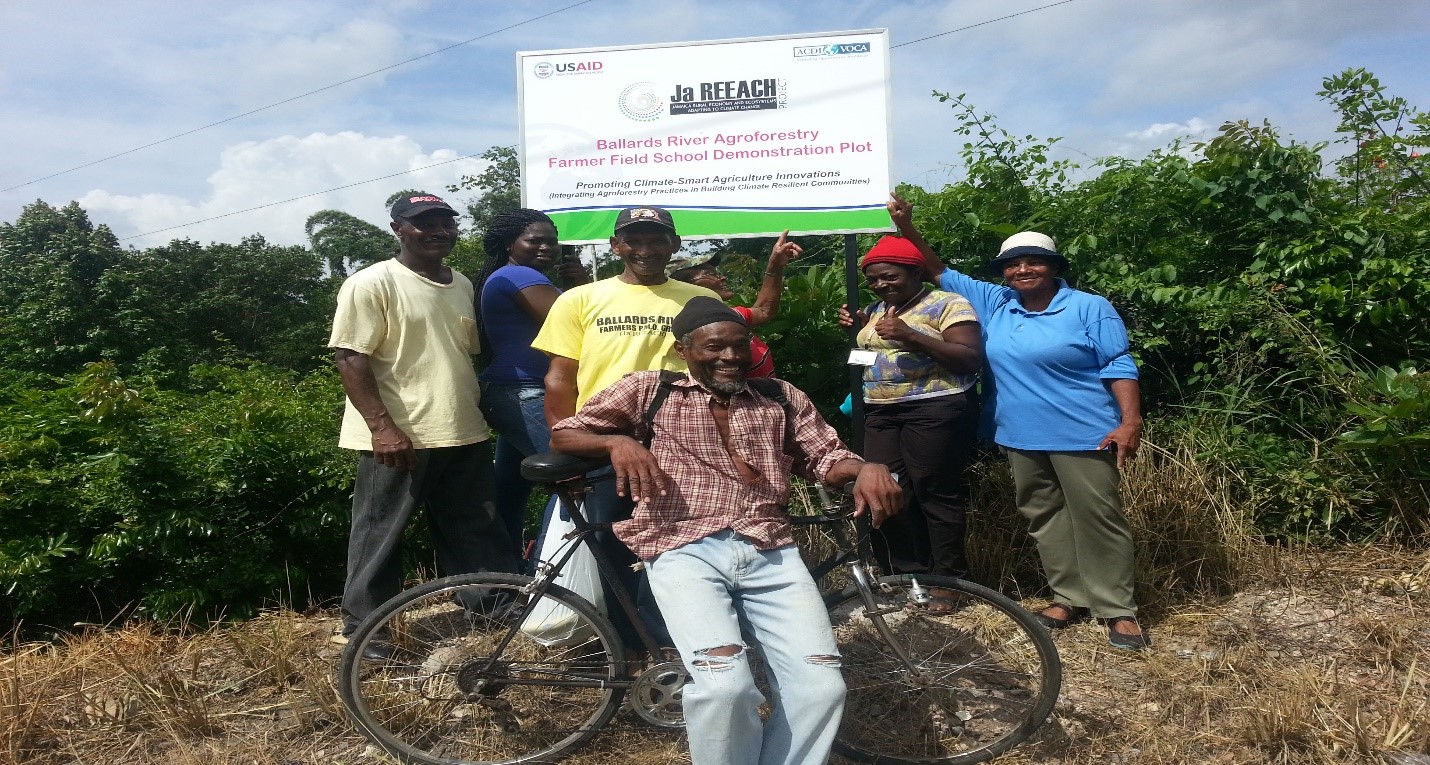Agriculture is deemed one of the most vulnerable sectors to climate change worldwide. This is particularly evident in developing countries where studies are showing how increased variability in rainfall is negatively impacting important cropping systems, the majority of which are rain-fed and operated by small farmers. This is true for the Caribbean, especially Jamaica where I am from. Climate change presents a clear threat to the nation’s food security, as the shifting growing seasons coupled with prolonged droughts have made farming increasingly difficult. There is thus an urgent need for the adoption of climate-smart practices, as these will clearly serve as a key tool for survival in times of change by reducing exposure to such impacts.
As part of my studies, I have investigated one such intervention in Jamaica that has taken a social learning approach to engaging farmers in the adoption of climate-smart agricultural practices – the Farmer Field School (FFS). Implemented by ACDI/VOCA, this approach attempts to combine local and scientific knowledge for effective communication of best practices to the individuals deemed most vulnerable: rural farmers. Currently being implemented across the island, these “schools without walls” have been able to facilitate improvements in farmer’s livelihoods by promoting the adoption of best practices, facilitating communication and collaboration between farmers and extension agents and have allowed for improvements in the knowledge of participants as it relates to climate change.
What is working for Jamaican farmers?
Best practices being promoted within Jamaican field schools have sought to reduce erosion, promote agroforestry and increase awareness of climate change across rural communities. The main methods include contour and companion planting, shade cropping and the use of individual catch basins. Contour planting, involves cultivating on sloped land to reduce soil losses from surface erosion. Pineapple contours are being promoted in particular, as these crops may be used both as a means of income as well as a method of reducing erosion. This technique involves planting single rows of pineapple shoots on hillside slopes with even spacing between the plants. The cultivation of these shoots are effective in erosion control as they hold the soil together reducing soil movement down slope. The pineapple is also cultivated as a short-term cash earning crop which provides an additional source of income for these households.
The practice of companion planting, which involves planting legumes with other crops, has been deemed important in enabling moisture and nutrient retention. Shade cropping is often done by planting banana and plantain trees, to reduce the exposure of smaller crops such as coffee, tomatoes and peppers to harsh temperatures. Individual catch basins serve as catchments and are often used on flat lands and serves as a means of reducing soil erosion while minimizing flooding and promoting infiltration.
Communication and Collaboration
Throughout the cycle of the field school, the farmer transitions from a mere participant to an avid contributor who interacts and shares ideas with other farmers and extension officers. As these farmers “learn while doing” the practices learnt are easily replicated on individual farms and this promotes the adoption of the innovations. There is diffusion of information to non-participants as well, as it is seen whereby non FFS members are now aware of some of these climate smart practices.
As farmers are encouraged to work in a group setting, co-operation and communication is enhanced This has led to the formation of cooperatives, farmers groups and friendly societies within some of these communities, where participants are capable of not only sharing agricultural information but also working towards community development.

Source: Author /FFS Participants
Improvements in Knowledge of Participants
Learning in FFS is indeed transformative as the impacts span far beyond the field, promoting improved awareness towards issues of climate variability and adaptation.There is an indication that the lessons learnt in FFS have facilitated a change in the knowledge of participants. When asked of the contributing factors and subsequent impacts of climate change, respondents admitted that prior to becoming members of the field school, they had limited knowledge of the issue. Upon becoming active members however, they are now more comfortable speaking on topics related to agriculture and climate change and are also helping to spread awareness amongst community members.
It is evident that climate change has and will continue to be a threat to the livelihoods of farmers. Through methodologies such as the Farmer Field School however these individuals have learnt to embrace a more active role in reducing hazards and are inspired to continue using such practices to reduce on farm damages and promote food security.



